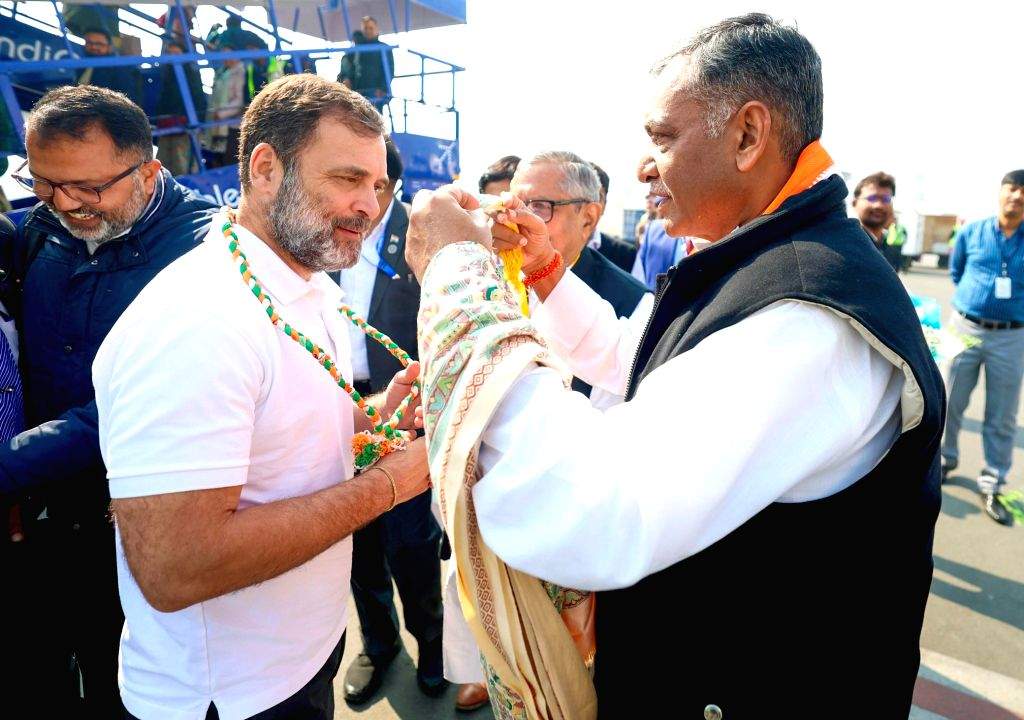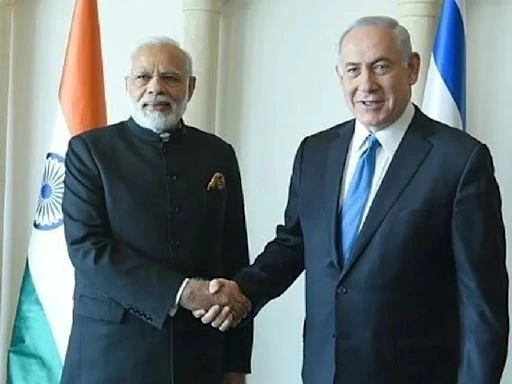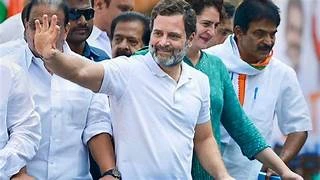07-Apr-2025, 04:15 PM In a bold statement made during his visit to Patna, Rahul Gandhi, Leader of the Opposition in the Lok Sabha, held the US President responsible for the recent global stock market downturn. Speaking at a public address in Bihar, Rahul Gandhi emphasized how decisions made by global powers, particularly the United States, have a cascading impact on economies like India’s. His remarks have triggered widespread debate among political leaders, economists, and the business community about the interconnectedness of international policies and their influence on the Indian economy.
Rahul Gandhi’s Economic Critique Targets US Policy
During his Patna visit, Rahul Gandhi did not hold back in his criticism of what he described as “reckless economic moves” by the US administration. He stated that the steep fall in the stock markets across the world was the direct outcome of abrupt policy shifts in Washington, including changes in interest rates, trade tariffs, and fiscal decisions.
According to Rahul Gandhi, the global economy is more fragile than ever before, and any misstep by an economic superpower can cause ripple effects globally. He added, “It’s not just about the US anymore. The entire global financial ecosystem is interlinked. When the US President takes a drastic step without considering global consequences, nations like India suffer.”
Rahul Gandhi Connects Global Instability to Indian Investor Sentiment
Highlighting the growing fears among Indian investors and small businesses, Rahul Gandhi said that market instability is affecting people at the grassroots level. He pointed out that the Sensex and Nifty had both witnessed a sharp decline in recent weeks, primarily in response to nervous international markets.
He remarked, “Small investors, mutual fund holders, and business owners are paying the price. The Indian middle class is deeply connected to market performance. These global policy blunders are hurting Indian dreams.”
Rahul Gandhi also called on the Indian government to play a more proactive role in global economic forums and ensure that such developments are countered with robust domestic policy responses.
Rahul Gandhi Calls for Stronger Indian Economic Safeguards
As part of his broader commentary, Rahul Gandhi stressed the need for India to build economic resilience against international shocks. He criticized the current Indian administration for being overly reliant on foreign trade and lacking contingency planning.
He said, “India cannot afford to be a silent spectator when decisions made thousands of miles away shake our economy. We must put in place mechanisms that protect our economy from external volatility.”
Rahul Gandhi urged the Reserve Bank of India (RBI) and the Ministry of Finance to formulate strategies that include better forecasting models, diversified trade partnerships, and internal stimulus measures to boost market confidence.
Blame or Reality? Mixed Reactions to Rahul Gandhi’s Statement
The comments made by Rahul Gandhi have drawn mixed reactions from across the political spectrum. Leaders from opposition parties lauded his understanding of the global economic scenario, while ruling party members dismissed his statements as “a misinformed political stunt.”
Economists have also shared differing views. While some agree that international policy, especially from powerful economies like the US, can affect emerging markets like India, others believe that Rahul Gandhi oversimplified the issue by placing all blame on the US President.
Nonetheless, the statement has reignited public discourse on India’s dependency on foreign economic trends and the need for more insulation from such volatility.
Rahul Gandhi Urges India to Take a Leading Role Globally
One of the key takeaways from Rahul Gandhi’s speech in Patna was his call for India to become a more assertive voice in the global economic arena. He proposed a more participative role in the G20, BRICS, and WTO to ensure India’s interests are safeguarded.
He said, “India is not a bystander. We are a global force. We must demand our place in decision-making, not just accept the consequences.”
Rahul Gandhi also emphasized India’s potential to lead in economic diplomacy, pushing for trade agreements that are mutually beneficial and politically stable.
Indian Stock Market Feels the Global Heat
While Rahul Gandhi’s comments were largely focused on leadership decisions in the US, his underlying point resonates with many investors who have seen their portfolios shrink over the past few weeks. The Bombay Stock Exchange (BSE) and the National Stock Exchange (NSE) have been under pressure, and market analysts have cited geopolitical tensions, rising interest rates in the US, and trade uncertainties as key triggers.
The Opposition leader used this moment to argue that the Modi-led government had failed to protect Indian investors from external shocks. He said that only a proactive and globally aware economic strategy could help safeguard India’s financial ecosystem.
A Political Strategy or Genuine Economic Concern?
Many political analysts believe that Rahul Gandhi’s strong international economic commentary is part of a broader Congress strategy to shift public discourse towards economic governance ahead of upcoming elections. By highlighting global missteps and connecting them with local hardships, the Congress hopes to regain ground among urban, educated voters and the middle class.
This strategy contrasts with the BJP’s largely nationalistic economic narrative, which emphasizes domestic development and internal reform.
If nothing else, Rahul Gandhi’s statement has succeeded in drawing attention to the vulnerabilities of India’s economy in a globalized world.
The Need for India-Centric Economic Policies
In conclusion, Rahul Gandhi proposed a vision for economic sovereignty, wherein India would be less dependent on foreign economic developments and more resilient in the face of international instability. He called for reforms in trade, finance, and industrial policy that would boost domestic productivity, consumption, and investor confidence.
He said, “Let’s create an Indian economy that thrives on internal strength, not on global goodwill alone. Our policies must protect our people and our businesses.”
Conclusion: Rahul Gandhi Revives Global-Local Economic Debate
As the Indian economy weathers the aftershocks of global developments, Rahul Gandhi’s speech has brought attention to the broader question: how much of India’s economic health is within its control? While placing the blame entirely on the US President might appear politically charged, it undeniably opens up important discussions on global accountability, economic planning, and financial diplomacy.
With elections approaching and economic sentiments running high, Rahul Gandhi seems keen on positioning himself as a leader who not only understands domestic issues but is also acutely aware of international dynamics that affect Indian lives.





